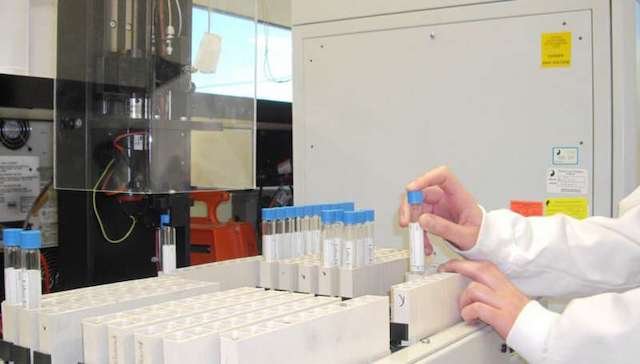
In a new study, researchers have created a new type of test that can detect gut disease effectively.
The test is non-invasive and only requires a breath sample, which means patients will feel much more comfortable when checking for gut disease.
The research was conducted by researchers from at Flinders University in Adelaide, South Australia.
In the study, the team aimed to develop the breath test after they saw family members suffer from invasive procedures.
According to them, the test can diagnose gut problems by simply measuring the amount of the Dipeptidyl peptidase-4 (DPP4) enzyme found in patients’ breath.
The specific DPP4 enzyme is produced in the small intestine and breaks down dietary proteins. The proteins are linked to coeliac disease and associated gut damage.
For example, coeliac patients have a lowered level of the enzyme, which is linked to difficulty breaking-down gluten.
In the new DPP4 test, a patient drinks a special liquid and then blows into a vial through a straw.
The breath sample is then examined with an isotope ratio mass spectrometer for the DPP4 enzyme.
The researchers hope that the new method would reduce the number of invasive procedures such as endoscopies or colonoscopies.
Currently, in Australia, about 400,000 gut testing procedures are performed at a cost of almost $500 million.
More than 15% of them are not necessary and not really providing any significant benefit to the patient.
Procedures like endoscopies or colonoscopies are often a waste of time and energy for the patient and the healthcare system.
These invasive procedures are also very stressful, especially for children.
The new test could help improve patient quality of life, reduce anxiety, and may save the health care system time and money.
The team now plan to examine the new test at the Women’s and Children’s Hospital in Adelaide.
In the future, they hope to commercialize the diagnosis method and benefit more patients.
The lead author of the study is Dr. Roger Yazbek.
The study is published in the international journal Scientific Reports.
Copyright © 2019 Knowridge Science Report. All rights reserved.



